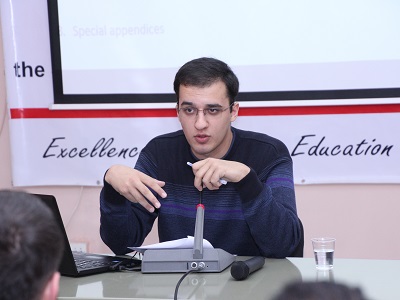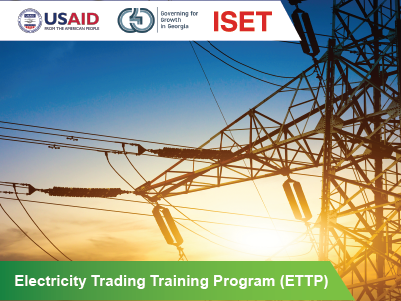Second-year BA student gives presentation about National Archives
- Details

On October 19, second-year BA student Nikoloz Sepiashvili gave a presentation about the first Ministry of Finance of Georgia. Out of many academically strong students, he was chosen as a researcher by the National Archives of Georgia. After his five months of research, Nikoloz presented his report to the public at the National Archives of Georgia, after which he was invited to speak on the Pirveli, Maestro and Imedi networks to answer questions of public interest. He said that it was a good opportunity for him to learn more about the economic, social, and political situation in Georgia during 1918-1921, because there was no previous research on the structure of the Ministry of Finance of Georgia or about the process of issuing the first Georgian paper money, the boni (ბონი).
Electricity Trading Training Program
- Details

Georgia committed to harmonize its electricity market legislation with EU Third Energy Package and liberalize it according to the accession protocol with the Energy Community. These structural changes are expected to contribute to a more efficient functioning of the Georgian electricity market and to support its development. The Georgian electricity market opening has already started. As a first step, recent amendments in the Law of Georgia on Electricity and Natural Gas mandated 110-35 kV customers with monthly average of 15 mln kWh consumption to trade on the wholesale electricity market. To support market development, it is foreseen to establish an organized spot electricity market, where market participants, namely electricity producers, traders, suppliers and electricity customers at wholesale level, will sell and procure electricity. Therefore, Georgian electricity market participants are currently in need to acquire tools, knowledge and skills to conduct modern electricity trading and risk mitigation actions, and to optimize their selling and buying decisions in both local and neighboring electricity markets.










